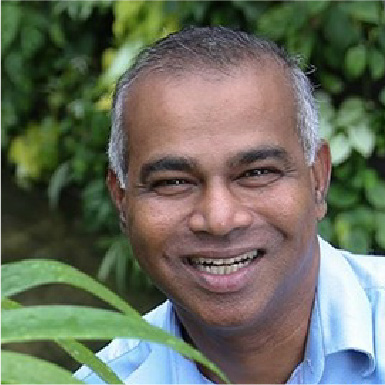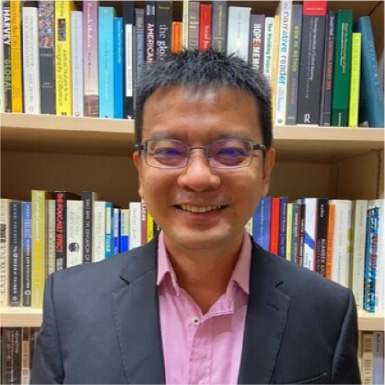

Sustainability is about ensuring that future generations inherit intact ecosystems
that would meet their needs as much as they are meeting our needs.
Regeneration takes sustainability further, by seeking to heal existing degradation
to nurture resilient ecosystems using interdisciplinary and frameworks
to address problems and foster intergenerational solutions.
Asian societies have gone down the path of rapid development
and urbanisation, leading to large-scale deterioration
of eco-systems and social resilience.
RAS aims to bring young people together in Singapore,
joined by thought leaders from around the world,
to exchange their ideas, deepen their skills and develop
inter-Asia networks to regenerate our world.
In 2025, the Asian
Undergraduate Symposium (AUS) will partner with the
inaugural RAS, providing AUS participants the opportunity to engage with 200
thought leaders globally. This partnership aims to introduce participants to the broader
concept of regeneration while fostering cultural exchange, networking, and capacity
development. Through this collaborative effort, AUS participants will be equipped to
transform academic discourse into practical solutions for real-world challenges.



The health of the planet is an existential challenge, requiring interdisciplinary approaches that go beyond sustainability towards regeneration as paradigm and practice. This course introduces the ecological and sociocultural dimensions of regeneration in three steps. First, to understand regeneration through systems thinking and complexity science, including the application of computational methods to ecological systems. Second, to forge intercultural connections among stakeholders and student leaders across generational divides. Third, to develop interdisciplinary projects using regenerative approaches and intercultural connections to tackle ecological problems in Asia, faced disproportionately by vulnerable communities.
|
02:00 PM |
Registration & Check-in |
|
06:00 PM |
Warm-up Dinner |
|
MPR 1
|
MPR 2
|
MPR 3
|
Dance Studio 1
|
Dance Studio 2
|
Dance Studio 3
|
MPR 4
|
MPR 5
|
Seminar Room 1
|
Seminar Room 2
|
Main Hall
|
NUS Field
|
|
|---|---|---|---|---|---|---|---|---|---|---|---|---|
|
08:00 AM – 09:00 AM |
Breakfast |
|||||||||||
|
09:00 AM – 09:10 AM |
Welcome Address ∘ Professor Tan Eng Chye, President of the National University of Singapore |
|||||||||||
|
09:10 AM – 09:20 AM |
Greetings from EXCO
∘ Brendan Toh and Misha Rajendran, Co-Chairpersons of RAS International Student Executive Committee
|
|||||||||||
|
09:20 AM – 10:50 AM |
Plenary Panel
From Net Zero to Net Positive: The Case for Regenerative Climate Action
Moderator:
∘ Veerasekaran Arumugam, Professor, National University of Singapore
∘ Yeo Bee Yin, MP for Puchong, Selangor; Former Minister of Energy, Technology, Science, Climate Change and Environment ∘ Dr. Rodel D. Lasco, Executive Director, Oscar M. Lopez Center (Philippines) |
|||||||||||
|
10:50 AM – 11:00 AM |
Break |
|||||||||||
|
11:00 AM – 11:30 PM |
|
Workshop
The Art of Us: Weaving Life and Wellbeing Through Paint
Facilitators:
∘ Elysia Tee, RAS International Student Executive Committee
∘ Kamila Maharani, RAS International Student Executive Committee |
|
|
Fireside Chat
Economics as if the Planet Existed Moderator:
∘ Bernise Ang, Chief Alchemist, Zeroth Labs∘ Professor Dr. Jomo Kwame Sundaram, Senior Advisor, Khazanah Research Institute |
Showcase
Strategic Networks: Building Youth Movements Across Borders
∘ Wai Pwint Wabo, Communication & Outreach Manager, Prevent Plastics+
|
Panel
Shared Realities: Transboundary Ecological Issues in Mainland Southeast Asia
Moderator:
∘ Elysia Tee, RAS International Student Executive Committee
∘ Songphonsak Ratanawilailak, Vice Director, Pgakenyaw Association for Sustainable Development (PASD) ∘ Caitlin Cartlier, Co-founder, Kokkoya Organics |
Panel
Shared Realities: Transboundary Ecological Issues in Archipelagic Southeast Asia
Moderator:
∘ Khyl Ashlee Ramos, RAS International Student Executive Committee
∘ Dr. Ng Keng Khoon, Professor, NUS College ∘ Rio Ahmad, Executive Director, Blue Forests (Yayasan Hutan Biru) ∘ Syazwan Majid, Founder, Wan's Ubin Journal |
Workshop
Nature as the Designer: Rethinking Infrastructure through Biomimicry
∘ Ibnur Rashad, Founder and Chief Innovation Officer, Ground-Up Innovation Labs for Development (GUILD)
Facilitators: ∘ Yin-Ze Wong, RAS International Student Executive Committee ∘ Nguyen Huynh Cam Tu (Lily), RAS International Student Executive Committee |
Workshop
Beyond the Tragedy: Rewriting Governance Through the Commons
∘ Choo Yi Feng, Author, SG Climate Rally
Facilitator: ∘ Carmen Leong, RAS International Student Executive Committee |
Performance
Past, Present and Future: Regeneration in Asia
∘ Arahmaiani Feisal, Artist and Environmental Activist
|
|
|
11:30 AM – 12:30 PM |
Fireside Chat
The Future We Steward
Moderator:
∘ Misha Rajendran, RAS International Student Executive Committee
∘ Tamara Singh, Managing Director, The Nature Conservancy (TNC) Singapore |
|||||||||||
|
12:30 PM – 01:30 PM |
Lunch |
|||||||||||
|
01:30 PM – 02:30 PM |
|
|
Workshop
RegenLab: Building Impact-Ready Teams for Southeast Asia
∘ Esther Cheng, Consultant of the Partnerships Team, Empact Singapore
∘ Alysia Tan, Analyst, Empact Singapore ∘ Fadhylla Zahari, Analyst, Empact Singapore |
Panel
Building Regenerative Economies: Supply Chain Pathways in the Circular Economy of Regional SEA
Moderator:
∘ Hridayansh Khera, RAS International Student Executive Committee
∘ Nilar Tun, Consultant, Freelance ∘ Carlo Chen-Delantar, Partner and Head of ESG & Circular Economy, Gobi Partners |
Showcase
Louis Ng: On Advocacy and Impact, from Civil Society to Politics
∘ Louis Ng, Associate Professor, NUS College
|
Panel
Real To Reel: How Media can Power a Regenerative Future
Moderator:
∘ Nguyen Huynh Cam Tu (Lily), RAS International Student Executive Committee
∘ Ridzki Sigit, Program Director, Mongabay Indonesia ∘ Qiyun Woo, Climate Activist and Storyteller, The Weird and the Wild ∘ Bryan Yong, Co-founder, EcoCupid ∘ Sudhir Vadaketh, Editor, Jom |
Mini Panel
Inheriting the Future: Youth, Culture & Creative Renewal
Moderator:
∘ Elysia Tee, RAS International EXCO
∘ Sophia Aye Aye Aung, Co-founder, Shecreates Myanmar and Kokoya Organics ∘ Firdaus Sani, Founder, Orang Laut SG |
Workshop
FutureFund: Investing in Cities that Heal
∘ Kamila Maharani, RAS International Student Executive Committee
∘ Elysia Tee, RAS International Student Executive Committee ∘ Low Chih Yu, RAS International Student Executive Committee |
Workshop
Startup for Earth: Mini Impact Accelerator
∘ Ambika Sangaran, Partner, Biji-biji Initiative
Facilitators: ∘ Reon Tay Ty, RAS International Student Executive Committee ∘ Lim Tze-Ren (Ryan), RAS International Student Executive Committee |
Workshop
Climate Fresk
∘ Natasha Lye, Climate Education Lead, The Transmutation Principle
∘ Valencia Fortuna, Sustainability Analyst, Climate Fresk Facilitator, The Transmutation Principle |
Main Panel
Rising from the Roots: Indigenous Futures in Motion
Moderator:
∘ Michelin Sallata, Founder and Program Lead, POMANARA; Ford Fellow 2024; ILC Young Leaders Fellow 2023
∘ Maslah Rompado, Chairman, Malaysia Indigenous Women Association ∘ Beverly Longid, International Solidarity Officer, KATRIBU (National Alliance of Indigenous Peoples Organisations in The Philippines) ∘ Nittaya Earkanna, Executive Director, Inter-Mountain Peoples Education and Culture in Thailand (IMPECT) Association |
|
|
02:30 PM – 03:00 PM |
Workshop
Business as if the Future Mattered: A Doughnut Economics Design Lab
∘ Rajul Priyadarshini, Founder, Atmos Advisory
|
|||||||||||
|
03:00 PM – 04:30 PM |
|
|
Rewilding Southeast Asia: Youth Leading the Charge for Change Moderator:
∘ Kamila Maharani, RAS International Student Executive Committee∘ Muhd Nasry, Executive Director, Singapore Youth Voices for Biodiversity (SYVB) ∘ Nadia Putri Rachma, Regional and National Chapter Coordinator, GYBN Southeast Asia & Indonesia ∘ Shaw La Mun, Chapter Coordinator, Global Youth Biodiversity Network - Myanmar |
Reviving ASEAN’s Endangered Languages: Voices for the Future Moderator:
∘ Ye Linn Htet (Ling), RAS International Student Executive Committee∘ Putu Eka Guna Yasa, Senior Advisor, BASAibu ∘ Dr. Mirinda Burarungrot, Lecturer and Researcher, Mahidol University Thai Translator:
∘ Phichamon Nopdara (Belle), RAS International Student Executive Committee
|
Systems Thinking: Restoring Ecosystems Through Reforestation & Wildlife Conservation
∘ Marianne Amores Dutta, Founder and Director, The Regenesis Project
∘ Satit Trachookwamdee, Founder, Huay Pakoot Elephant Community Foundation ∘ Hoang Van Chuong, Co-founder, GreenViet Biodiversity Conservation Centre Facilitators:
∘ Low Chih Yu, RAS International Student Executive Committee∘ Khine Yee, RAS International Student Executive Committee ∘ Yin-Ze Wong, RAS International Student Executive Committee |
Systems Thinking: Holistic Strategies for Marine Conservation & Protection
∘ Mabel Anjali Primana, CSR Community Manager, Seven Clean Seas
∘ Sam Shu Qin, Co-founder, Our Singapore Reefs ∘ Cher Chua-Lassalvy, Founder, Tengah Island Conservation Facilitators:
∘ Tze-Ren (Ryan) Lim, RAS International Student Executive Committee∘ Raudyah (Yuya) Faatiha Taruna, RAS International Student Executive Committee ∘ Nguyen Vu Bao Tran (Alix), RAS International Student Executive Committee |
Shaping Regenerative Policies: The Role of Governance in a Changing Climate Moderator:
∘ Melissa Low, Research Fellow, Centre for Nature-based Climate Solutions, National University of Singapore∘ Vivek Kumar, Chief Executive Officer, WWF-Singapore ∘ Ho Xiang Tian, Co-Founder, LepakInSG |
Workshop
Nature as Medicine: the Science of Forest Bathing & Ecotherapy
∘ Santosh Kumar, Founder, Soul Probe
Facilitators: ∘ Kamila Maharani, RAS International Student Executive Committee ∘ Elysia Tee, RAS International Student Executive Committee ∘ Low Chih Yu, RAS International Student Executive Committee |
||||
|
04:30 PM – 05:00 PM |
Refreshment |
|||||||||||
|
05:00 PM – 06:00 PM |
Fireside Chat
Fireside Chat with President Tharman
Guest:
∘ Tharman Shanmugaratnam, President of The Republic of Singapore
Moderators: ∘ Lavine See, RAS International Student Executive Committee ∘ Carmen Leong, RAS International Student Executive Committee ∘ Nguyen Vu Bao Tran (Alix), RAS International Student Executive Committee |
|||||||||||
|
06:00 PM – 07:30 PM |
Impact Leaders Dinner with President Tharman & Student Dinner |
|||||||||||
|
MPR 1
|
MPR 2
|
MPR 3
|
Dance Studio 1
|
Dance Studio 2
|
Dance Studio 3
|
MPR 4
|
MPR 5
|
Seminar Room 1
|
Seminar Room 2
|
Main Hall
|
NUS Field
|
|
|---|---|---|---|---|---|---|---|---|---|---|---|---|
|
08:00 AM – 09:00 AM |
Breakfast |
|||||||||||
|
09:00 AM – 10:00 AM |
Opening Address: Rooted in Renewal: Indigenous Wisdom and Southeast Asia's Regenerative Future
Moderator:
∘ Lavine See, RAS International Student Executive Committee
∘ Jenifer Lasimbang, Executive Director, Indigenous People of Asia Solidarity (IPAS) Fund |
|||||||||||
|
10:00 AM – 11:00 AM |
Fireside Chat
Ouroboros: Decay, Collapse, and Renewal in Regenerative Systems
Moderator:
∘ Dr. F. Merlin Franco, Assistant Professor of Environmental Studies, Institute of Asian Studies, University of Brunei Darussalam
∘ Dr. Thiri Dawei Aung, Executive Director, Biodiversity And Nature Conservation Association (BANCA) ∘ Dr. Gideon Lasco, Professorial Lecturer at the University of The Philippines, Department of Anthropology; Physician, Medical Anthropologist, and Writer ∘ Farah H. Sanwari, Co-founder, FiTree and The Futures Collective |
|||||||||||
|
11:00 AM – 11:15 AM |
Coffee and Refreshments |
|||||||||||
|
11:15 AM – 12:45 PM |
|
Workshop
Mindful Drinks: Closing the Coffee Loop - One Sip at a Time [Sponsored] |
|
Panel
The Blue Renaissance: Restoring Life from Reef to Shore
Moderator:
∘ Ang Qing, Correspondent, The Straits Times
∘ Uma Sachidhanandam, Director, Conservation & Science, WWF-Singapore ∘ Dr. Radhika Bhargava Gajre, Research Fellow, National University of Singapore ∘ Gabrielle Malcolm, Nature-based Solutions (NbS) Partnerships Coordinator of Asia Pacific, The Nature Conservancy (TNC) Singapore |
Workshop
Intergenerational Leadership for Businesses
∘ Kaspar Koechli, Head Community, Research and Singapore Office, St. Gallens Symposium
Facilitators: ∘ Kamila Maharani, RAS International Student Executive Committee ∘ Muhd Syafiq Bin Hj Mohd Ali Sabri, RAS International Student Executive Committee |
Showcase
The Learning Journey of The Learning Farm
∘ Gouri Mirpuri, Founder, The Learning Farm
∘ Wisnu Berniadi, General Manager, The Learning Farm |
Panel
Fork to Future: Reimagining Food for a Regenerative World Moderator:
∘ Toh Jun Jie, RAS International Student Executive Committee∘ Repa Kustipia, Gastronomist and Ethnofood Anthropologist, Center for Study Indonesian Food Anthropology (CS-IFA) and Social Enterprise ∘ ∘ Gastro Tourism Academy ∘ William Chen, Director and Professor, NTU Food Science & Technology Programme ∘ Dr. Kwan Lui, Founder, At-Sunrice GlobalChef Academy |
Workshop
The Role of Technology in Sustainability: Insights from Sustainable Living Lab
∘ Veerappan Swaminathan, CEO, Sustainable Living Lab
|
Workshop
The Regenerative Blueprint: Green Buildings of the Future
∘ Do Huu Nhat Quang, Co-founder and Business Development Director, GREENVIET Green Building Consultancy
∘ Nguyen Duy Tan, Partners, G8A Architecture & Urban Planning Facilitators: ∘ Nguyen Vu Bao Tran (Alix), Member, RAS International Executive Committee ∘ Raudyah Faatiha Taruna (Yuya), RAS International Student Executive Committee |
Workshop
Pass It On: Designing with Purpose: How Circular Design is Rewriting Retail [Sponsored]
∘ Michelle Chow, Founder and Managing Director, Pass It On
∘ Serene Tan, Co-founder, Pass It On Facilitator]s: ∘ Reon Tay Ty, RAS International Student Executive Committee ∘ Lukman Nur Hakim, RAS International Student Executive Committee |
Main Panel
Regenerative Urbanism: Building Cities That Heal and Thrive
Moderator:
∘ Austin Ong, RAS International Student Executive Committee
∘ Veerasekaran Arumugam, Professor, National University of Singapore ∘ Jan Lim, Co-founder & Director (Research & Strategy), Participate in Design ∘ Dr. Shawn Lum, Former President of Nature Society (Singapore), Senior Lecturer, NTU Asian School of the Environment |
|
|
12:45 PM – 01:45 PM |
Lunch |
|||||||||||
|
01:45 PM – 03:15 PM |
|
Workshop
Futureproof Cities I: Ecological Design for Climate Resilience in Cities with Mr. Wiza Hidayat
∘ Wiza Hidayat, Chief Executive Officer, Ecobuild Green Building Consultant
Facilitator:
∘ Nguyen Vu Bao Tran (Alix), RAS International Student Executive Committee
|
Workshop
Futureproof Cities II: Ecological Design for Climate Resilience in Cities with Dr. Ken Yeang
∘ Dr. Ken Yeang, Chief Executive Officer, T.R. Hamzah Yeang Sdn Bhd
Facilitator:
∘ Raudyah (Yuya) Faatiha Taruna, RAS International Student Executive Committee
|
Panel
Growing for Good: Regenerative Agriculture in ASEAN Moderator:
∘ Beverley Postma, Executive Director, Grow Asia∘ Dr. Shailendra Mishra, Global Head of Climate, Environment & Natural Capital, Olam Agri ∘ Shruthi Kumar, Associate Programme Director (Climate and Liveability), Temasek Foundation ∘ David Chen, Chief Executive Officer, AgriG8 |
|
Showcase
Local Voices, Global Echoes: Storytelling for Cultural Connection
∘ Ang Xiao Ting, Eco-theatre Practitioner
|
|
Workshop
Biodiversity & You(th): Understanding the GBF
∘ Muhd Nasry, Executive Director, Singapore Youth Voices for Biodiversity
∘ Nadia Putri Rachma, Regional and National Chapter Coordinator, GYBN Southeast Asia & Indonesia Facilitator:
∘ Haritsa Muh, RAS International Student Executive Committee
|
Workshop
Threads Across Borders: Intersectional Climate Justice inSoutheast Asia
∘ Kavya Gopal, Environmental Activist, SG Climate Rally
∘ Kristian-Marc James Paul, Environmental Activist, SG Climate Rally Facilitators:
∘ Austin Ong, RAS International Student Executive Committee∘ Yin-Ze Wong, RAS International Student Executive Committee |
|
Main Panel
Repairing Value: Business in a Post-Growth World Moderator:
∘ Bernise Ang, Chief Alchemist, Zeroth Labs∘ Subhashini Chandran, Senior Vice President (Social Impact, Asia Pacific, Europe, Middle East and Africa), Mastercard Center for Inclusive Growth ∘ So-Young Kang, CEO & Founder, Gnowbe ∘ Alvin Lim, Co-Founder and Chief Executive Officer, Climate Bridge |
|
|
03:15 PM – 03:45 PM |
|
|
|
|
|
|||||||
|
03:00 PM – 03:30 PM |
|
|
|
|
|
|
|
|
|
Workshop
Unlocking Our Positive Core: An Appreciative Approach to Regeneration
∘ Regina Vanda, Consultant, Research & Publications Lead, Sequoia Group
∘ Shubaashini Vijayamohan, Principal Consultant, Sequoia Group |
|
|
|
03:30 PM – 05:00 PM |
Panel
Jus Naturae: Legal Personhood for Nature as the Key to Global Regeneration Moderator:
∘ Manishankar Prasad, PhD Researcher, Universiti Malaya∘ Dr. Linda Yanti Sulistiawati, Senior Research Fellow, NUS Asia-Pacific Centre for Environmental Law ∘ Georgina Lloyd, Regional Coordinator (Asia and the Pacific) of Environmental Law and Governance, UN Environment Programme (UNEP) ∘ Abe Lim, NextGen Board Member, ClientEarth |
Showcase
Guardians of the Wild – The Battle for Masungi
∘ Tristan Montemor, Discovery Trail Head, Masungi Georeserve
|
Panel
Beyond ESG: Rethinking Climate and Carbon Finance for a Regenerative ASEAN Moderator:
∘ Toh Jun Jie, RAS International Student Executive Committee∘ Kristina Anguelova, Head of Asia Sustainable Finance, World Wide Fund (WWF) Singapore ∘ Jack Chong, Director APAC (Carbon Markets Infrastructure), S&P Global ∘ Ken Lee, Co-Founder, First Impact Partners |
Workshop
The Future of RAS: 2026 and Beyond
∘ Bernise Ang, Chief Alchemist, Zeroth Labs
∘ Shaun Koh, Chief Strategist, Zeroth Labs ∘ Carmen Leong, RAS International Student Executive Committee ∘ Kamila Maharani, RAS International Student Executive Committee |
Showcase
Pathways to Thriving Regenerative Movements Moderator:
∘ Nguyen Vu Bao Tran (Alix), RAS International Student Executive Committee∘ Quach Thanh Thien, Co-founder, VCIL Community |
Main Panel
Umbilical (Dis)cord: Climate, Health, and our Disconnect with the Planet Moderator:
∘ Andi Fadhil Mughny Anwar, RAS International Student Executive Committee∘ Dr. Hsu Li Yang, Vice Dean, NUS Saw Swee Hock School of Public Health ∘ Dr. Fatimah Ahamad, Chief Scientist, Sunway Centre for Planetary Health ∘ Lydia Law, Co-Director, Heat Resilience and Performance Centre at Yong Loo Lin School of Medicine, National University of Singapore |
||||||
|
05:00 PM – 05:30 PM |
Break |
|||||||||||
|
05:30 PM – 06:30 PM |
Fireside Chat
Guardians of the Future: Intergenerational Climate Action |
|||||||||||
|
06:30 PM – 07:00 PM |
Closing Ceremony |
|||||||||||
|
07:00 PM – 07:30 PM |
Student Dinner |
|||||||||||

Research and development of new technologies in Nature-Based for Urban and Natural Ecologies, Regenerative Agriculture for Indoor Urban (Controlled Environment Agriculture) and Outdoor Smart farms. Lecturer in various topics in Engineering Design and Innovation, IoT and Smart Ai systems, Regenerative Cities of the Future (NUS Cities), and Biological Sciences in Nature-based solutions for Conservation and Ecology. Leading in Masterplan Development of NUS Campus and other campus development projects.

I am a sociologist who uses ethnographic and comparative-historical methods to study state formation, urbanism, postcolonialism, race and multiculturalism, and religion in Asia. I work closely with anthropologists, geographers, historians, legal scholars, planning scholars and fellow sociologists on interdisciplinary research projects. I research and write to leave a legacy of knowledge. I love teaching and learning from undergraduate and graduate students.




A mission-driven research and innovation lab, Zeroth Labs uses the science of complex systems to tackle wicked problems. They support countries and cities at varying stages of development to make sense of the messy underlying dynamics that make their complex policy challenges the way they are.
NUS SOC Summer
Workshop
School of Computing (SOC)
Phase 1 (Online):
12 May, 19 May and 26 May
Phase 2 (On site)
29 June to 22 July
NUS Young
Fellowship
Programme (YFP)
NUS Graduate School and SCALE
24 June to 28 June
Global Science
Summer
Programme
Faculty of Science (FOS)
1 July to 19 July
Asian
Undergraduate
Symposium (AUS)
NUS College (NUSC)
7 July to 19 July
FASStrack
Faculty of Arts & Social Sciences
(FASS)
3 July to 18 July
Science Summer Institute
Faculty of Science (FOS)
7 July to 18 July
NUS Enterprise Summer
Programme in Entrepreneurship
NUS Enterprise Academy
7 July to 18 July